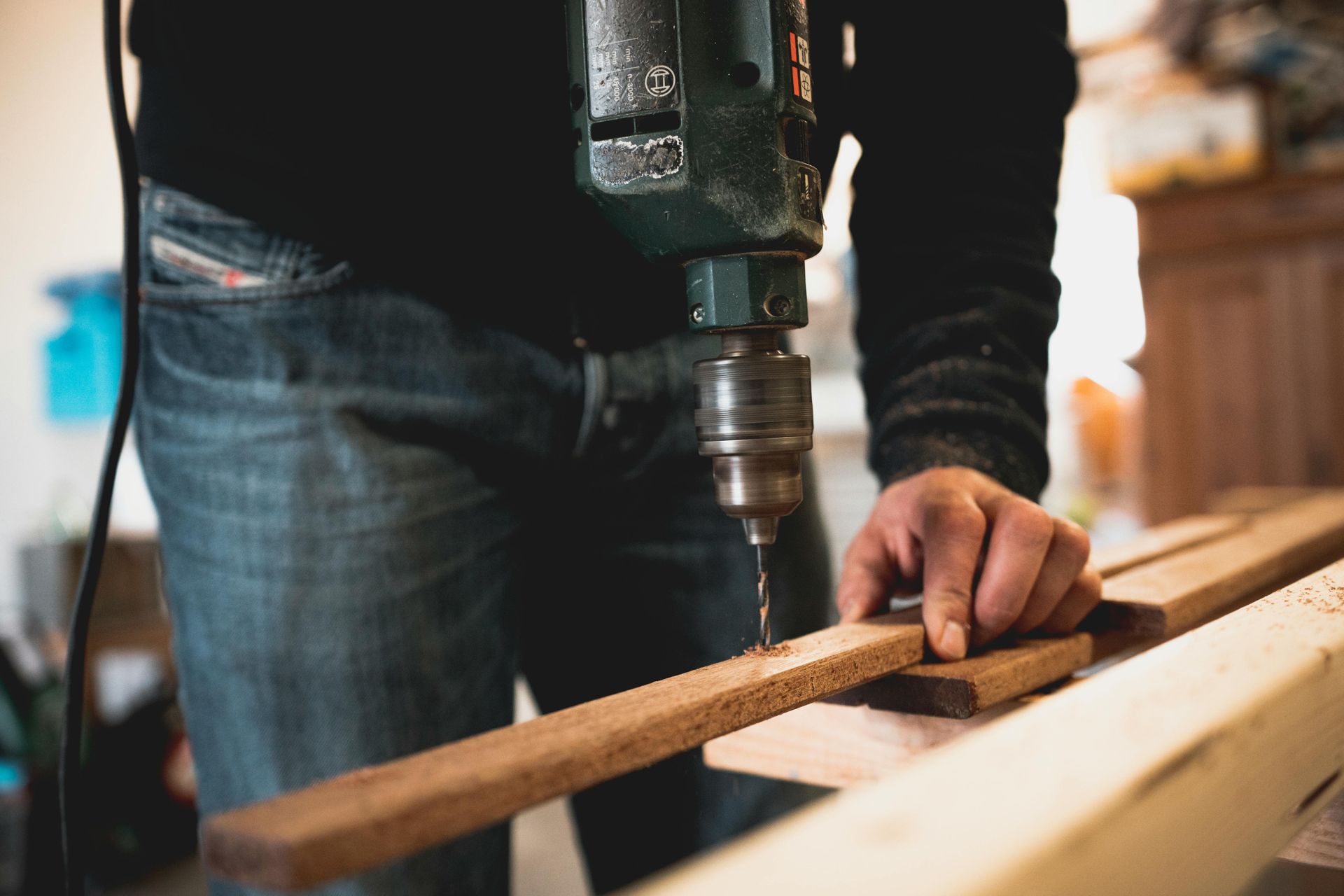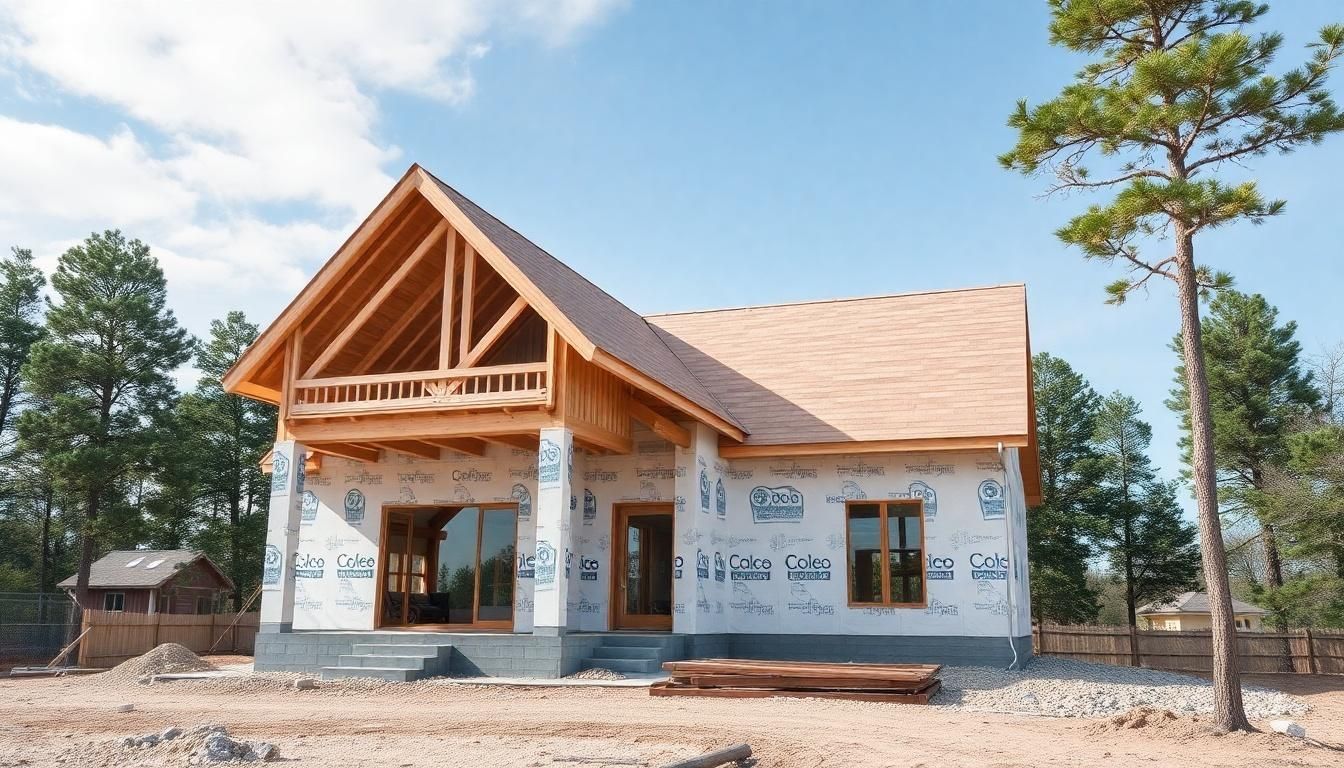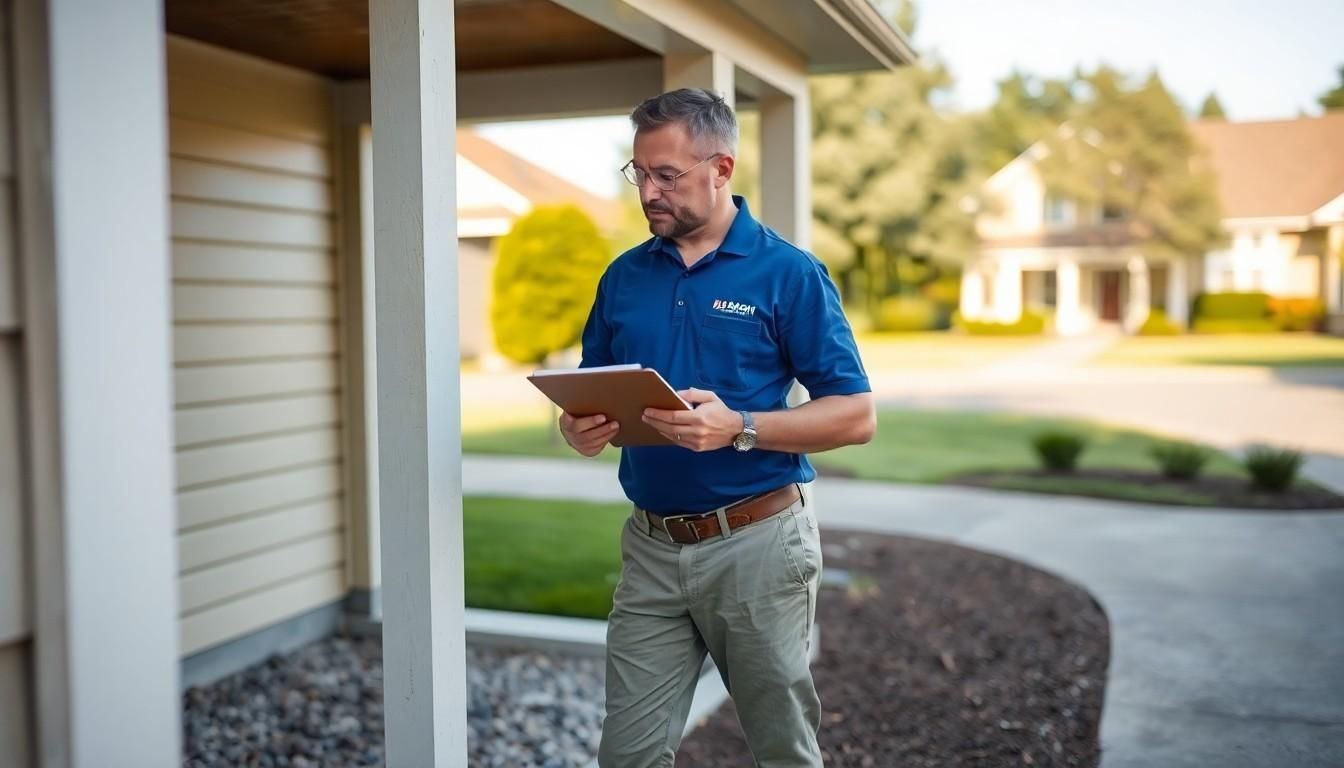Savvy Solutions: DIY vs Professional Carpentry Repairs
Savvy Solutions: DIY vs Professional Carpentry Repairs
Homeowners often grapple with the decision of tackling carpentry repairs themselves or hiring a professional. Indeed, when considering DIY vs professional carpentry repairs, there are several factors to weigh carefully. While DIY projects can be tempting, they come with their own set of challenges. From miscalculating measurements to underestimating the time and skill required, many find that what seemed like a simple task quickly spirals into a frustrating ordeal.
Furthermore, professional carpenters bring expertise and efficiency to the table. They not only ensure high-quality work but also save homeowners from the stress of potential mistakes. This article looks into the pros and cons of DIY versus professional carpentry repairs, helping homeowners make informed choices that best suit their needs and budgets.
Overview of Carpentry Repairs: Exploring the Comparison of DIY vs Professional Carpentry Repairs
Carpentry repairs play a vital role in maintaining a home's structure and aesthetic appeal. In essence, homeowners frequently confront issues such as damaged cabinetry, worn stairs, or rotting wood. Understanding the scope of carpentry repairs helps homeowners assess their options when weighing DIY vs professional carpentry repairs.
To put it simply, DIY carpentry repairs empower homeowners with the ability to take on projects without incurring labor costs. However, challenges can arise, such as inadequate tools, insufficient knowledge of materials, and potential safety hazards. Precise measurements and woodworking skills are crucial for achieving satisfactory results. Homeowners often miscalculate, leading to costly mistakes that require rework or even professional intervention.
Professional carpenters bring expertise and experience to each repair. They possess the necessary skills to handle complex projects efficiently. Their knowledge of construction standards and building codes ensures that repairs comply with regulations, providing peace of mind. Professional services also include access to specialized tools, materials, and techniques that can yield superior results compared to DIY efforts in the ongoing debate of DIY vs professional carpentry repairs.
Ultimately, homeowners must evaluate their skills and the complexity of the repair when making a decision. Weighing the cost against time and quality can guide them in choosing the best approach for their carpentry needs. For further assistance, visiting My Accurate Home Services can provide valuable insights into available carpentry solutions.

Benefits of DIY Carpentry Repairs
DIY carpentry repairs offer various advantages for homeowners willing to tackle their projects. Homeowners often gain a sense of accomplishment from completing tasks independently. They save funds by avoiding labor costs while gaining hands-on experience in carpentry skills. Such experiences can enhance knowledge and confidence in home maintenance. When homeowners choose DIY repairs, they can take their time to develop familiarity with the tools and techniques necessary for future projects.
Cost Savings
Cost savings stand out as one of the primary benefits of DIY carpentry repairs. Homeowners can significantly reduce expenses by eliminating labor charges. In addition to savings on labor, purchasing materials directly can lead to better deals. Home improvement stores frequently offer discounts, and homeowners can take advantage of sales for items like lumber, fasteners, and finishes.
Setting a budget also allows homeowners to allocate funds wisely and incorporate upgrades in their repairs. For instance, while fixing cabinetry, they might choose high-quality materials that enhance aesthetics without hiring someone to install them. Although tools may require investment, rental options exist, making borrowing for specific projects financially viable. Ultimately, cost savings coupled with personal satisfaction create strong motivation for many homeowners to take on DIY carpentry repairs.
Flexibility and Control
Flexibility and control present key advantages of undertaking DIY carpentry repairs. Homeowners determine their project timelines, allowing them to work at their own pace. This autonomy enables them to juggle renovations around their schedules, accommodating family and work commitments. For example, those with demanding jobs can complete projects on weekends or evenings without the pressure of professional deadlines.
Moreover, homeowners can customize their repairs according to unique preferences. They decide on designs, materials, and finishes that resonate with their vision for their homes. Such control extends to problem-solving during the project. Homeowners can address unexpected issues instantly, leading to tailored solutions that fit their specific needs.
DIY carpentry repairs instill a sense of ownership in home improvement. This engagement fosters a connection to their spaces that enhances pride and emotional investment. Such factors not only make the process rewarding but also empower homeowners with newfound skills and knowledge for future repairs.
For structured assistance in carpentry projects, consider exploring My Accurate Home Services.
Advantages of Professional Carpentry Repairs
Professional carpentry repairs come with numerous advantages that can greatly impact the quality and longevity of home improvements. Homeowners often face decisions that can affect their property’s value and safety. By opting for professional carpenters, individuals ensure that intricate repairs adhere to high standards and regulations. With extensive training and experience, professional carpenters effectively address various repair challenges, ensuring that the outcomes meet both aesthetic and structural needs. The investment in professional services often results in lasting value, preserving the home’s integrity and functionality.
Expertise and Skill
Professional carpenters bring a wealth of expertise and skill to every project. Their extensive training equips them to handle a wide range of carpentry repairs, from fixing damaged structures to crafting custom cabinetry. Professionals possess an in-depth understanding of materials, techniques, and building codes, which is crucial for ensuring compliance and safety. Experience allows them to anticipate potential issues, delivering solutions that DIY enthusiasts might overlook.
For instance, a professional carpenter can quickly spot signs of underlying damage, like rot or pests, that may not be immediately apparent. Their ability to execute complex repairs not only guarantees high-quality craftsmanship but also reduces the risk of future problems. This specialized knowledge leads to durable, aesthetically pleasing results that enhance the home’s value. Homeowners gain peace of mind knowing that skilled professionals are executing critical repairs, minimizing stress while maximizing satisfaction.
Time Efficiency
Time efficiency represents a significant advantage of hiring professional carpenters. Completing carpentry repairs often requires considerable time, especially for those without expertise. Professionals streamline the process, utilizing their skills to execute tasks quickly and effectively. They arrive with the right tools and equipment, eliminating delays associated with gathering materials or troubleshooting techniques. This optimized workflow allows for greater productivity and ensures projects stay on schedule.
For example, while a DIY enthusiast might spend hours or days trying to perfect a cabinet installation, a professional can often complete the same job in a fraction of the time without sacrificing quality. Professionals also manage multiple aspects of the repair process simultaneously, coordinating tasks to further expedite completion. This time-saving approach minimizes disruption to homeowners’ daily routines, allowing them to enjoy the results sooner. By investing in professional services, homeowners avoid the frustration of lengthy DIY projects, ultimately allowing them to focus on what truly matters: creating a comfortable living space.

Key Considerations in the Comparison of DIY vs Professional Carpentry Repairs
Homeowners face essential considerations when deciding between DIY and professional carpentry repairs. The project's scope, required tools, and resources greatly influence the decision. Assessing these factors can lead to better outcomes, whether opting for personal effort or expert assistance.
Project Scope and Complexity
Determining the project's scope and complexity is crucial in the DIY vs professional carpentry repairs debate. For instance, simple repairs, like fixing loose cabinet doors or replacing small boards, often suit those with basic skills.
However, more complex projects, such as structural repairs or intricate cabinetry, require professional expertise. Professionals possess the training and experience to recognize hidden issues and apply appropriate solutions, ensuring structural integrity and aesthetic appeal.
Above all, homeowners benefit from consulting experts before embarking on substantial renovations or repairs. Evaluating the complexity can help them avoid costly mistakes or delays when weighing DIY vs professional carpentry repairs. Specifically, if the repair involves electrical or plumbing elements—areas often intertwined with carpentry—these should always be left to experts. Given that incorrect handling can lead to significant safety hazards or complications, engaging professionals for complex tasks safeguards the home and reduces possible future expenses.
Tools and Resources Required
Tools and resources significantly impact the DIY vs professional carpentry repairs decision. DIY enthusiasts may possess basic tools like hammers and screwdrivers, but specialized carpentry tools often elude them. These specialized tools, including saws, chisels, and nail guns, are vital for completing various carpentry tasks. While homeowners can rent some tools, the lack of experience may hinder efficient use, ultimately affecting outcomes.
On the other hand, professional carpenters come equipped with state-of-the-art tools and resources when considering DIY vs professional carpentry repairs. These experts understand how to use their equipment effectively and possess access to materials that save time and ensure superior quality. Moreover, hiring professionals means avoiding initial investments in tools and materials that may remain unused after a project concludes.
By considering required resources and tools, homeowners can decide which option aligns best with their comfort level, skills, and overall budget. For more details on carpentry needs, visit My Accurate Home Services.
Conclusion
Deciding between DIY and professional carpentry repairs ultimately hinges on individual circumstances. Homeowners should weigh the complexity of the project against their skills and available tools. While DIY offers a rewarding experience and potential cost savings, it can also lead to unexpected challenges and frustrations. Conversely, hiring a professional ensures quality workmanship and adherence to safety standards.
Homeowners can make wise decisions that improve their home when they take the time to really understand their wants and the extent of the repairs. Whether opting for a DIY approach or seeking professional help, the goal remains the same: to maintain a safe and beautiful home.
Frequently Asked Questions
What are the main challenges of DIY carpentry repairs?
DIY carpentry repairs can be challenging due to miscalculating measurements, lack of proper tools, and inadequate skills. As a matter of fact, when evaluating DIY vs professional carpentry repairs, homeowners often discover they've underestimated the time and effort required, leading to frustration or incomplete projects. Nevertheless, many still attempt repairs themselves despite these challenges. Additionally, safety hazards can arise if proper precautions aren't taken, which is another important consideration in the DIY vs professional carpentry repairs debate.
Why should I consider hiring a professional carpenter?
Hiring a professional carpenter ensures high-quality work and expertise. They possess the necessary skills, specialized tools, and knowledge of building codes, which reduces the risk of mistakes. Professionals can complete projects quickly, saving you time and ensuring your repairs enhance your home’s value.
Can DIY carpentry repairs save money?
Yes, DIY carpentry repairs can save money by eliminating labor costs and allowing homeowners to purchase materials on their own. However, the savings depend on your skill level and the complexity of the project. Simple tasks are often manageable, but complex repairs may incur hidden costs.
What are the benefits of hiring a professional carpenter?
Professional carpenters provide expertise, ensuring high standards and compliance with regulations. They efficiently address complex repairs, identify underlying issues, and deliver durable results. Hiring a pro can also save time and minimize disruption, allowing homeowners to enjoy their living space sooner.
How do I know if a DIY project is suitable for me?
Assess your skills, comfort level, and the project's complexity. Simple projects, like replacing cabinet doors or small repairs, might be suitable for DIY. For tasks involving electrical or plumbing work, or if the project requires specialized tools, hiring a professional is advisable to ensure safety and quality.
What tools do I need for basic DIY carpentry projects?
Basic DIY carpentry tools include a tape measure, level, saw, hammer, drill, and screwdrivers. Depending on the project, you may also need clamps, chisels, or sanders. However, for complex tasks, specialized tools may be necessary, which professionals often have access to.











